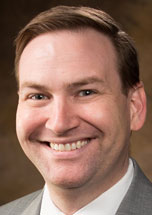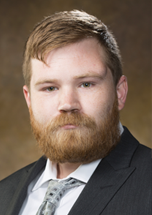
When I open my banking app or email client, I expect it not only to do its job now but I expected it to do its job from the moment I first downloaded that app and elected to do business with that company. And yet I rarely think of trust or why I have that trust in the first place. Granted, contemplating distrust or why I abandon certain technologies is easy because I fall prey to negative bias like anyone else – it’s easy to focus on data breaches, onerous terms and conditions, privacy oversteps, or products failing to live up to the hype – but trust, and why I trust, is a harder thing to define.
The recent whitepaper from the Blockchain Center of Excellence, “IT’s a Matter of Trust,” has drawn my attention to this often-ignored question of why while also uncovering 13 assumptions about trust that emerged from their analysis of information systems research. In this paper, Mary Lacity, Sebastian Schuetz, Le Kuai, and Zachary Steelman, analyze “trust in IT artifacts and in the entities that source, operate, and govern IT.” By analyzing 214 articles across eight journals, the researchers identified key trends in information systems research regarding trust as well as identified gaps in the IS literature that future research can and should explore.
The researchers demonstrate that IS research will remain interested in trust because new technologies will continue to emerge, which means new forms of governance must be instituted, and new forms of transactions will develop that require us to rethink how we trust others in our networks.
What we talk about when we talk about trust
Trust is one of those “big words,” similar to love or freedom, whose meaning we often take for granted. It is a concept that “is essential to every part of the human experience” yet what do we mean precisely when we say “trust”? In our workaday lives, we tend to assume that everyone knows what we mean when we say "trust," or we perhaps even think that everyone else shares our definition.
But those assumptions fall apart once we begin to dig a bit deeper. Scholars in computer science, economics, information systems, marketing, management, political science, psychology, and sociology have all examined trust and all focus on different aspects of trust in their research. Tunneling deeper into the concept of trust doesn’t bring us to a mother lode of shared understanding so much as a network of branching and intersecting tunnels.
While there is some commonality in over 60 academic definitions the researchers found, namely the presence of a human subject (trustor) and an object of trust (trustee), the nuances seem to outweigh the commonalities. In fact, Lacity, et al. identified 13 assumptions about trust that transcended disciplinary boundaries.
IS researchers have focused primarily on the contextual aspect of trust, the multidimensional aspect of trust – its ability to hold multiple meanings simultaneously, and how trust dynamically changes over time. What this means in actual practice is that IS scholars have examined how trust operates in a wide variety of contexts – from blogging to e-commerce to privacy and enterprise systems – as well as what motivates people to trust in these contexts and for how long or under what conditions trust remains. Likewise, users may display trust towards a piece of hardware or software for a variety of reasons, including because of trust they already have in the institution or organization backing it, trust based on their own knowledge of the product or service, or a general disposition to trust.
Despite the extensive research IS scholars have conducted, Lacity, Schuetz, Kuai, and Steelman posited several new frontiers scholars should explore. The authors encourage scholars to investigate the following topics:
- As new technologies and ways of engaging digitally emerge, how does that affect trust? This focus has long been a mainstay in IS scholarship, focusing on topics as varied as internet use, virtual and globally distributed teams, and avatars, but future research should explore how trust operates in blockchains, generative AI, the metaverse, and public health contract tracing apps.
- Extensive research has been conducted on the subject’s trust in an object of trust but what about the object’s trust in the subject? IS research has rightly focused on one-way trust but not as much research has been conducted on bidirectional trust. The governance of a platform can be an important consideration for building trust between parties, so how governance mediates trust may be a ripe area for future exploration.
- On social media, do I (or should I) trust a colleague of a colleague of a colleague or do I limit my degree of trust only to the connections I know firsthand? Hackers regularly exploit transitive trust but blockchain networks, such as Ripple and Stellar, “find paths of transitive trust that are more than a single hop.”
- How does distrust actually affect user behavior? Distrust involves “negative expectations and emotions” and is not just low trust levels or the simple absence of trust; in fact, trust and distrust may be so independent of one another that both concepts can exist simultaneously in the same relationship.
Why trust matters
When I think of the information technologies that I use, I rarely think of why I use them. I think instead of what these technologies allow me to accomplish, how they work, when they are useful, and whether they actually do what their marketing materials promise they will do.
Considering why people trust is an important first step for professionals because it puts us in the minds of the consumers, clients, and colleagues who use the products and services our organizations provide. While Lacity and her coauthors focus on creating new research frontiers, their call to examine how we view trust – a concept many of us take for granted – is one that should not go unheeded.
Every single time an organization makes a change to the way consumers, clients, or employees engage with a product or service offering, someone in that organization should ask “how are we helping these users continue to trust us” or “how can we earn their trust anew,” or “how can we get them to transfer existing levels of trust they have with us over to this new project?”
Be that someone.
Be that person who does not take users’ trust for granted but is willing to dig deeper to understand why they trust, in what contexts do they trust, how long does that trust last, and the myriad other questions that IS researchers have posed. Your organizations – and your users – will undoubtedly reward this line inquiry.









